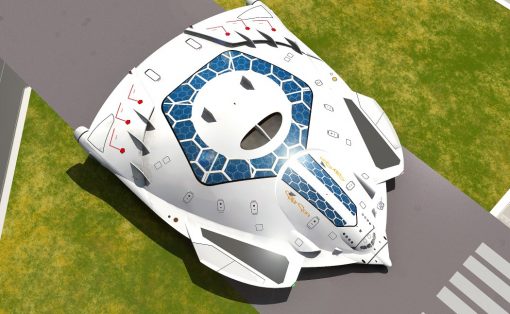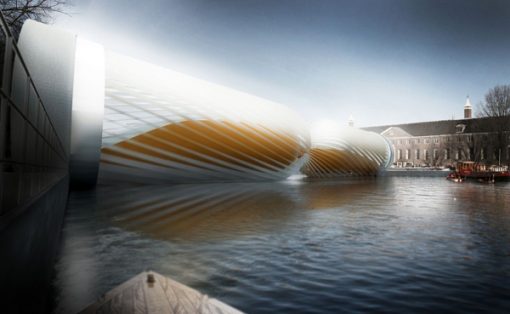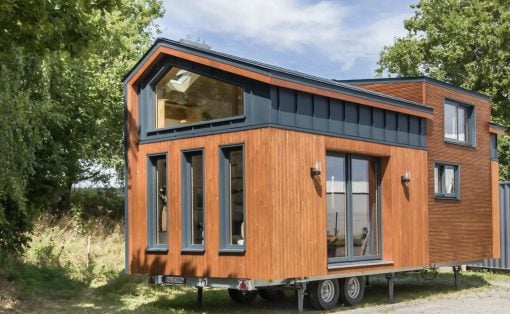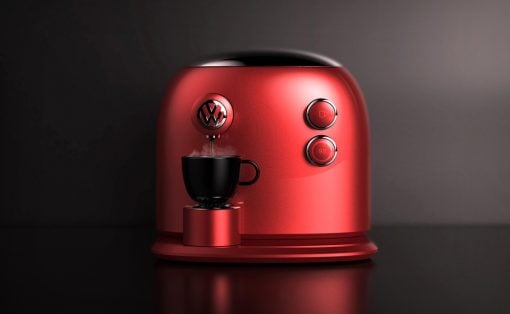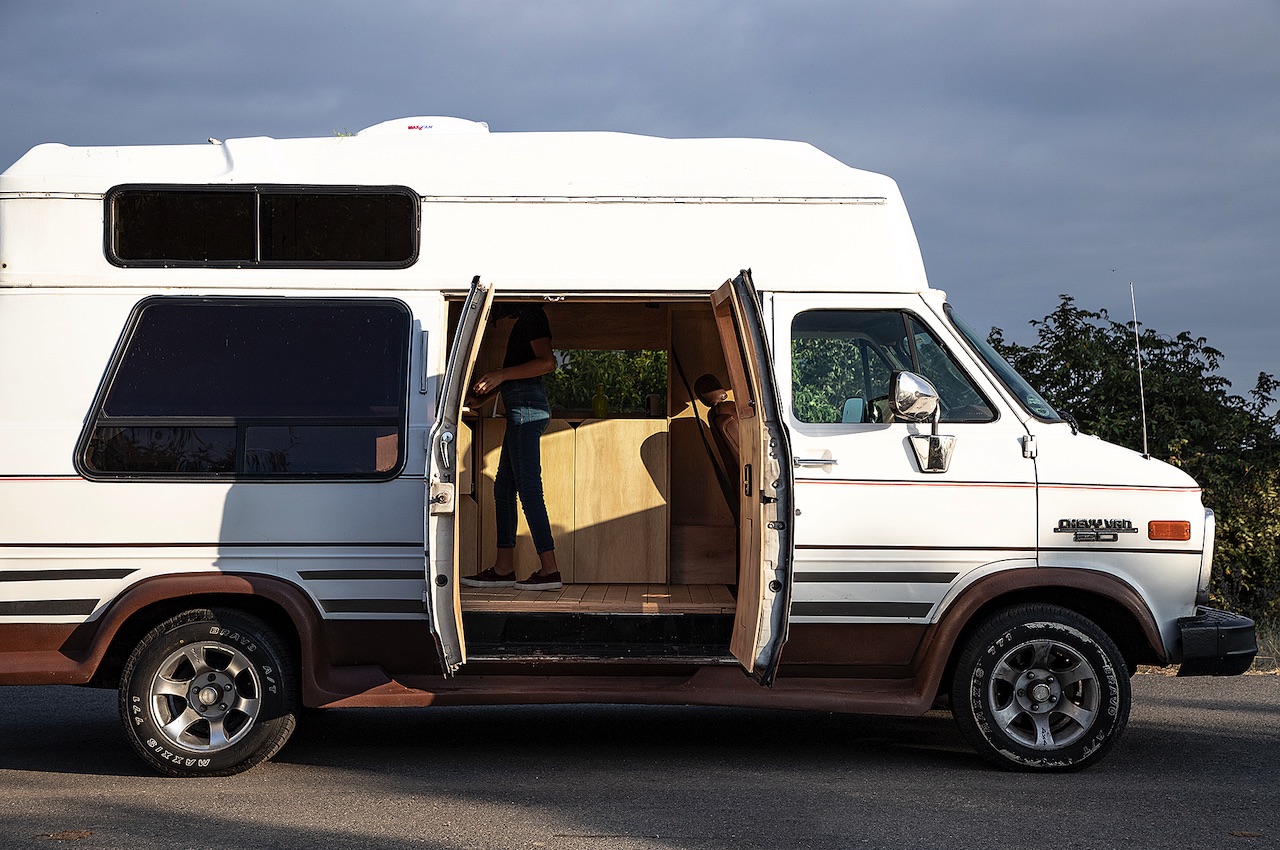
Sustainability has been running through everybody’s mind. Ever since the pandemic shook up our world, we’ve been trying to incorporate sustainability into every aspect of our life, including our homes! With everyone aspiring toward’s eco-friendly and mindful ways of living, tiny homes have been taking over the architecture world, and they continue to grow popular by the day. And tiny homes on wheels, in particular, have really taken us by storm! What started off as a cute little trend is now turning into a serious option for home spaces that are portable and travel-friendly. You can now take your cozy and comfy home with you wherever you travel. These tiny homes on the move are simple and minimal alternatives to the imposing and materialistic homes that seem to have taken over. And we’ve curated a wide range of travel-friendly micro-home setups that will cater to everybody’s unique needs and preferences. There’s a tiny home out there for everyone.
1. The Dodo Van
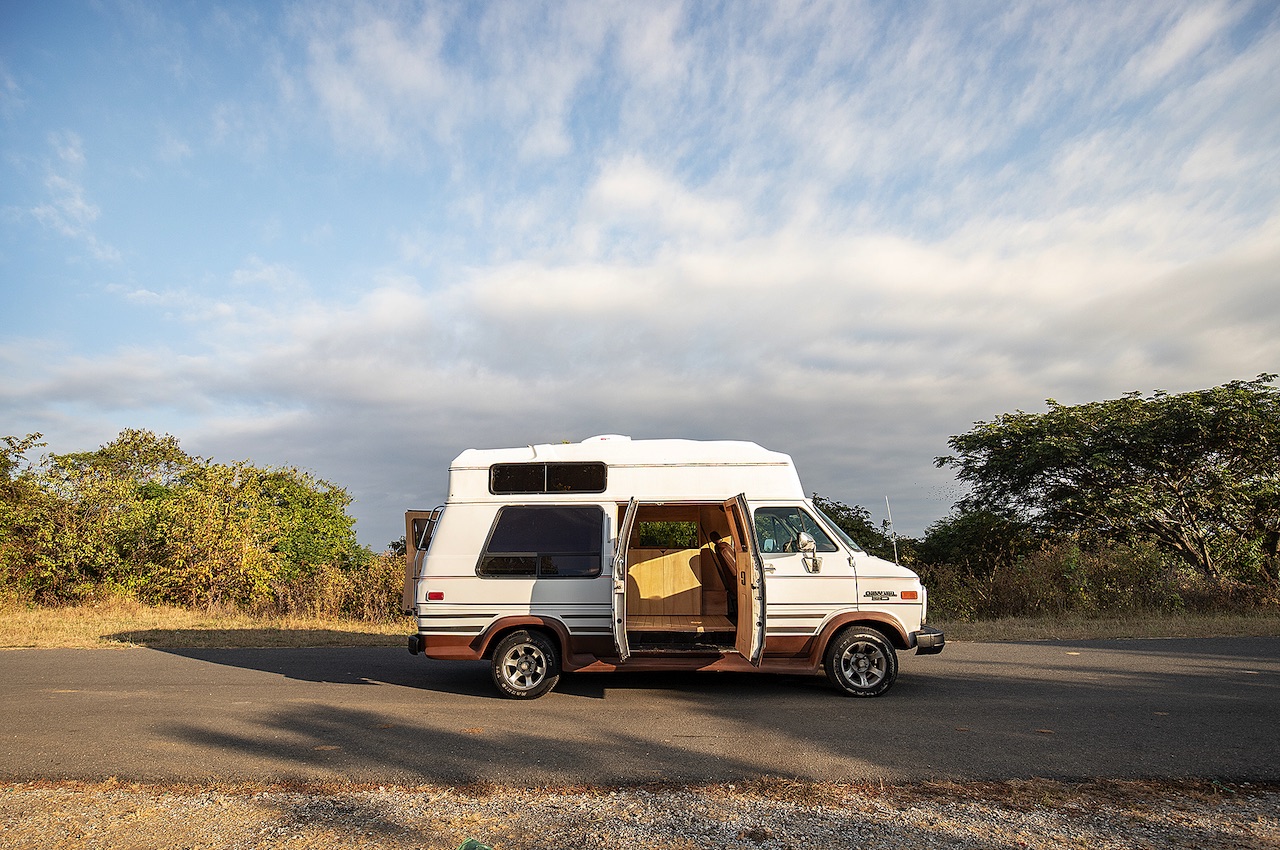
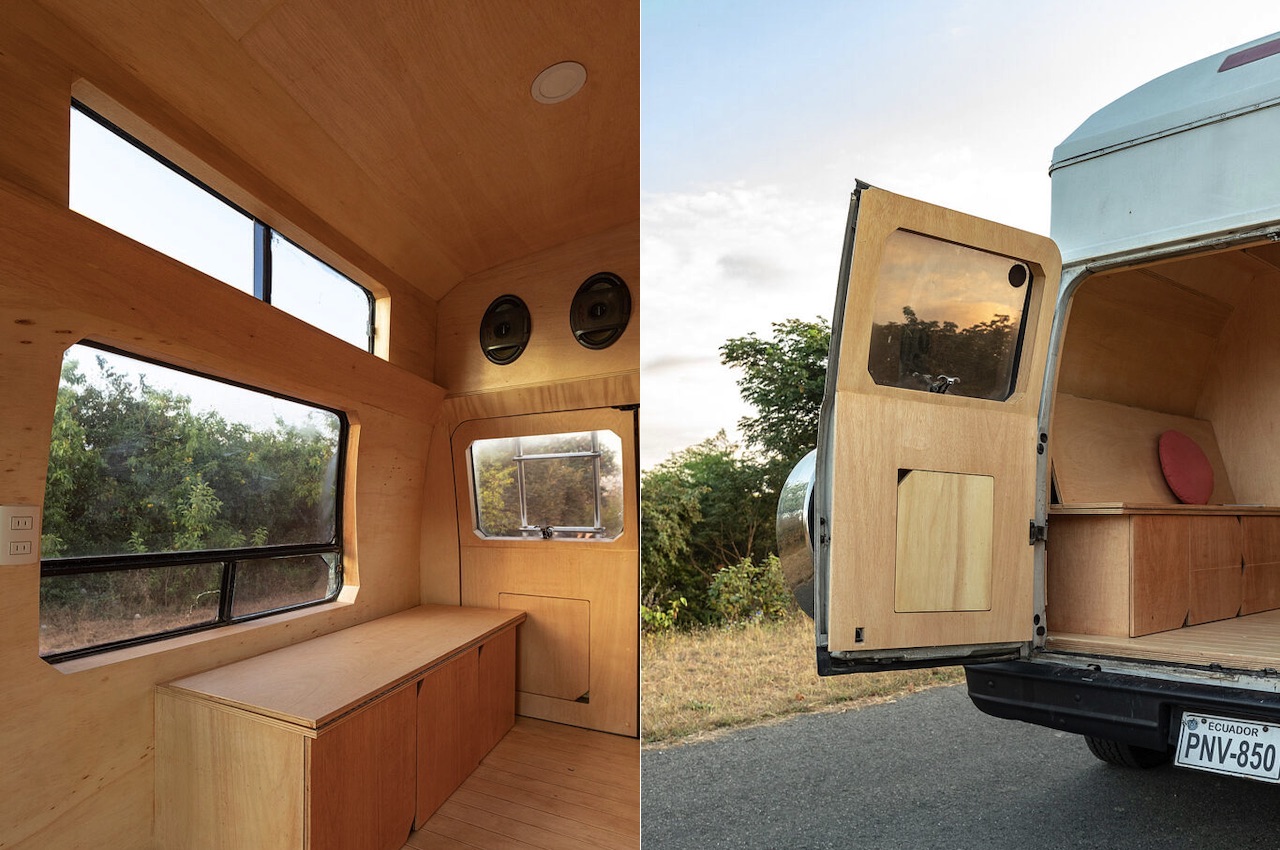
The Dodo Van has been designed for a young couple who wants to live in a smaller place. The 1993 Chevy van was actually purchased for work and travel. Inside the van, you can see a full-sized mattress and a kitchenette with a fold-up dining table, and more.
Why is it noteworthy?
The Dodo Van is a design exercise that challenges transformation, limitations, and spatiality. The designers considered the needs of the young pair working with local communities. They are also frequent travelers who love to explore new places. They only take with them their essentials, so a small mobile home is just right.
What we like
- For thermo-acoustic proper insulation, rock wool was actually used on the ceiling, walls, and the floor
- There is an independent battery connected to the vehicle’s alternator for electricity
What we dislike
- The Dodo Van is small but it can comfortably accommodate a group of people
2. Tind
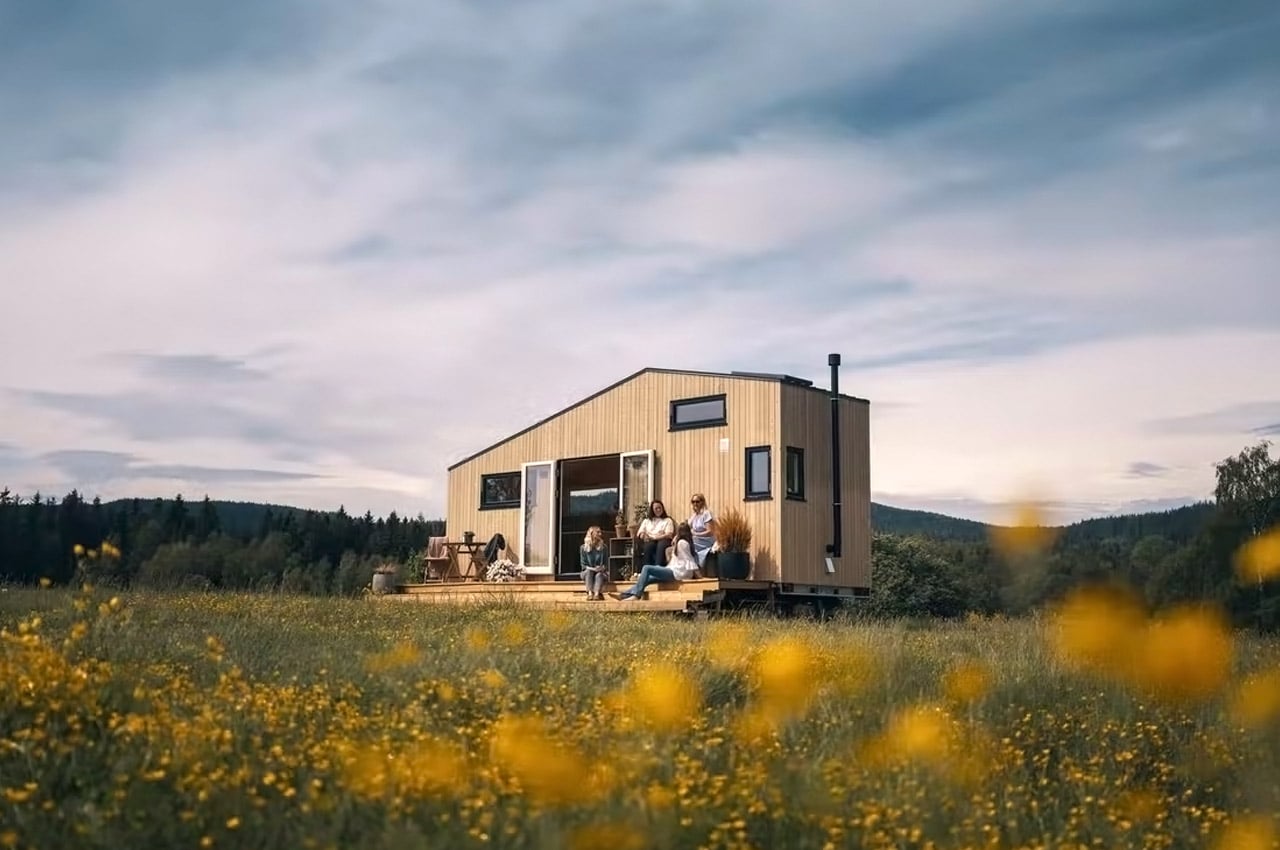
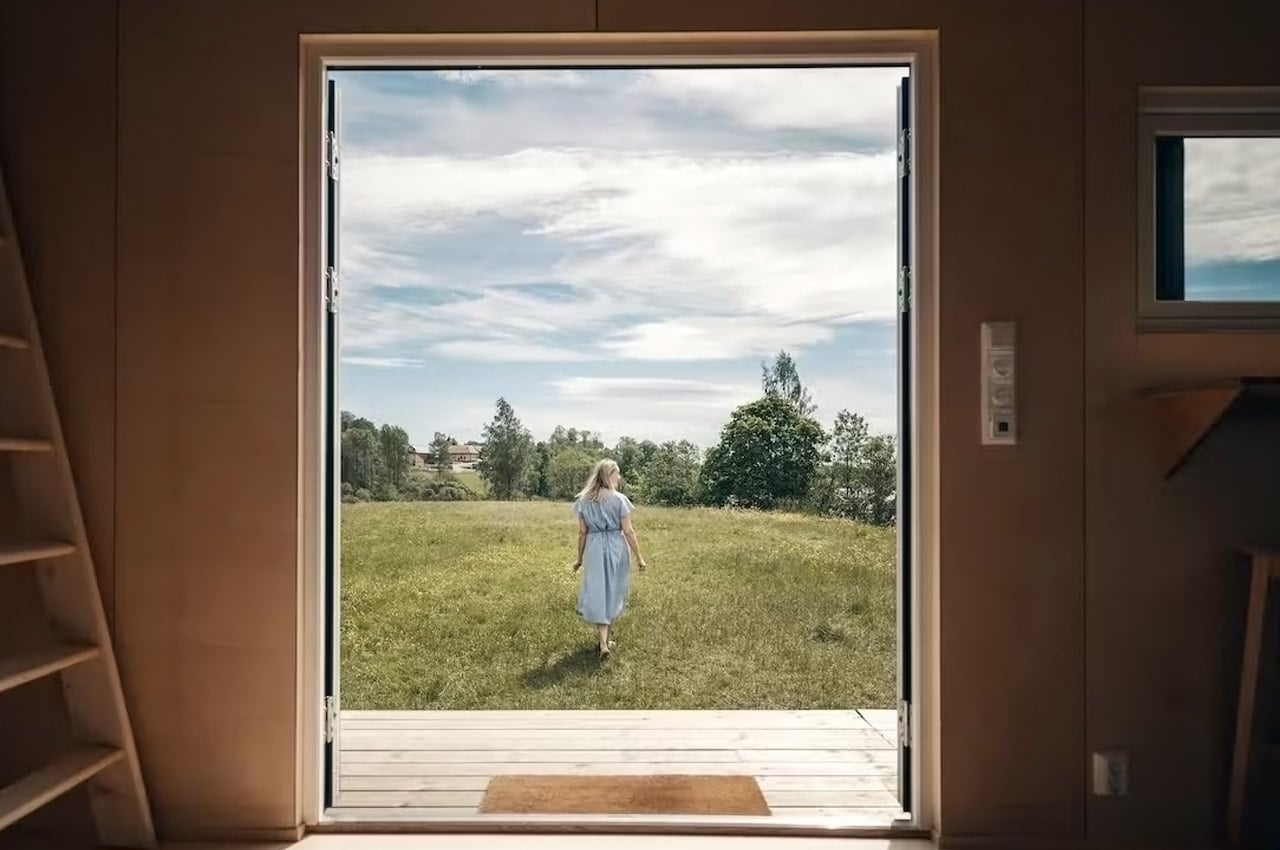
David and Jeanette Reiss-Andersen, cofounders of the Oslo-based tiny home company Norske Mikrohus, decided to build an eco-friendly and affordable alternative to the pricier standard-size homes available on the market.” We wanted to create something for people looking for a way out of the rental and mortgage markets—something for those who want easy access to nature and to live with fewer possessions,” said David.
Why is it noteworthy?
Measuring 70 square feet, Tind is a tiny home on wheels, that draws inspiration from the forests and mountains of Norway. It’s also clad completely in Norwegian spruce, making it a sustainable little house. Not only the exterior but the interior of the home is also clad in wood – birch veneer, to be specific, giving the space a very modern, natural, and warm vibe. Large glass doors connect the indoors to the outdoors, creating a lovely connection to nature.
What we like
- A compact built-in wooden counter in the open-plan kitchen serves as an efficient home office, as well as a handy dining area
- There’s a walk-in closet, which isn’t seen in most tiny homes
What we dislike
- No complaints!
3. Baluchon
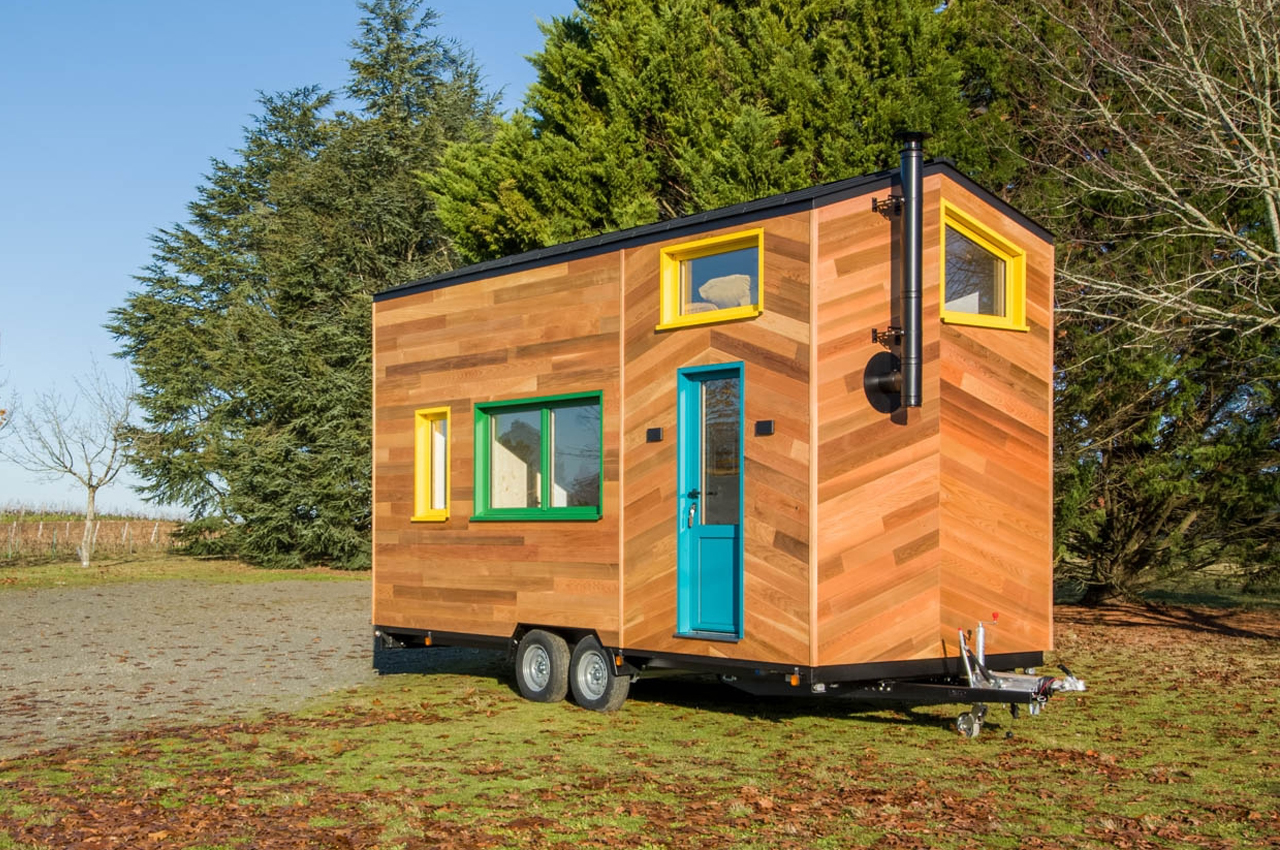
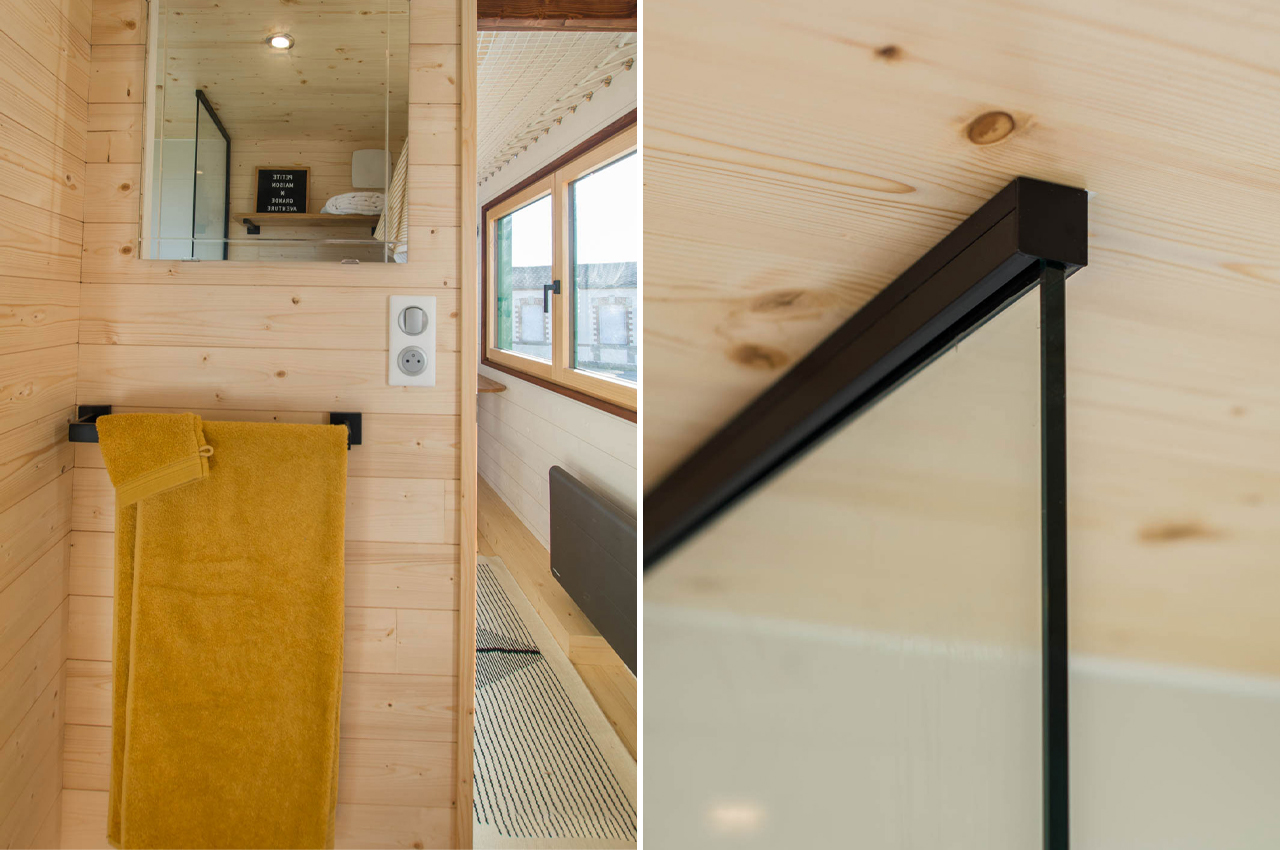
Baluchon is a tiny home company co-founded by Laëtitia and Vincent who devote their time to building tiny houses on wheels for clients and their various needs. Planedennig, a tiny house on wheels built for a mother and her young son, finds some pizzazz with a colorful exterior and functionality with a multifunctional interior.
Why is it noteworthy?
Planedennig, which translates to ‘little planet’ in Breton, was designed and built for Gaël and Eflamm, a mother and her young son, to have a place for living and for play. Defined by its colorful joinery that punctuates the exterior, Planedennig’s outer facade keeps a cedar finish that helps calm the playful energy. Measuring a total length of only six feet, Planedennig has a unique layout that makes the most of the tiny home’s interior volume.
What we like
- Planedennig only requires a standard RV-style hookup to power up all of its amenities
What we dislike
- No complaints!
4. Adraga
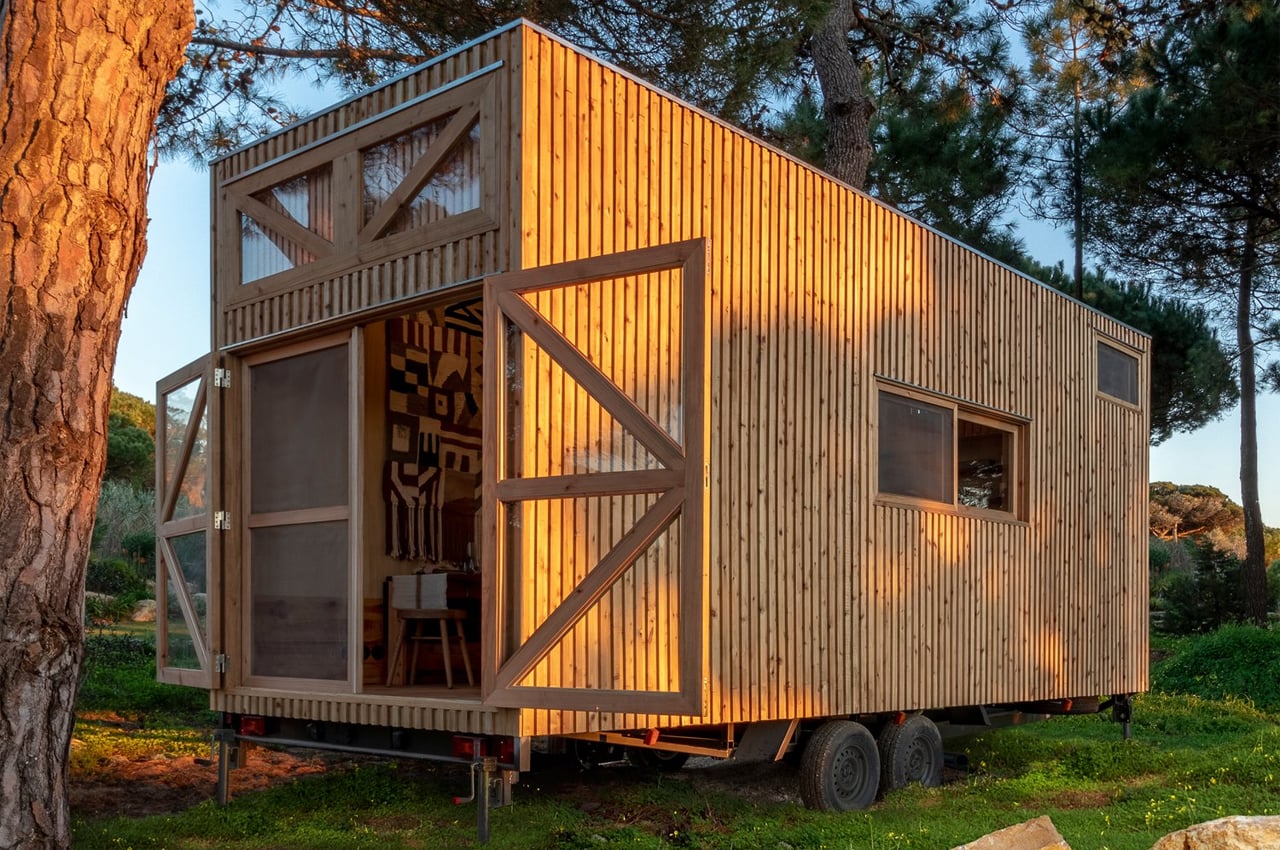
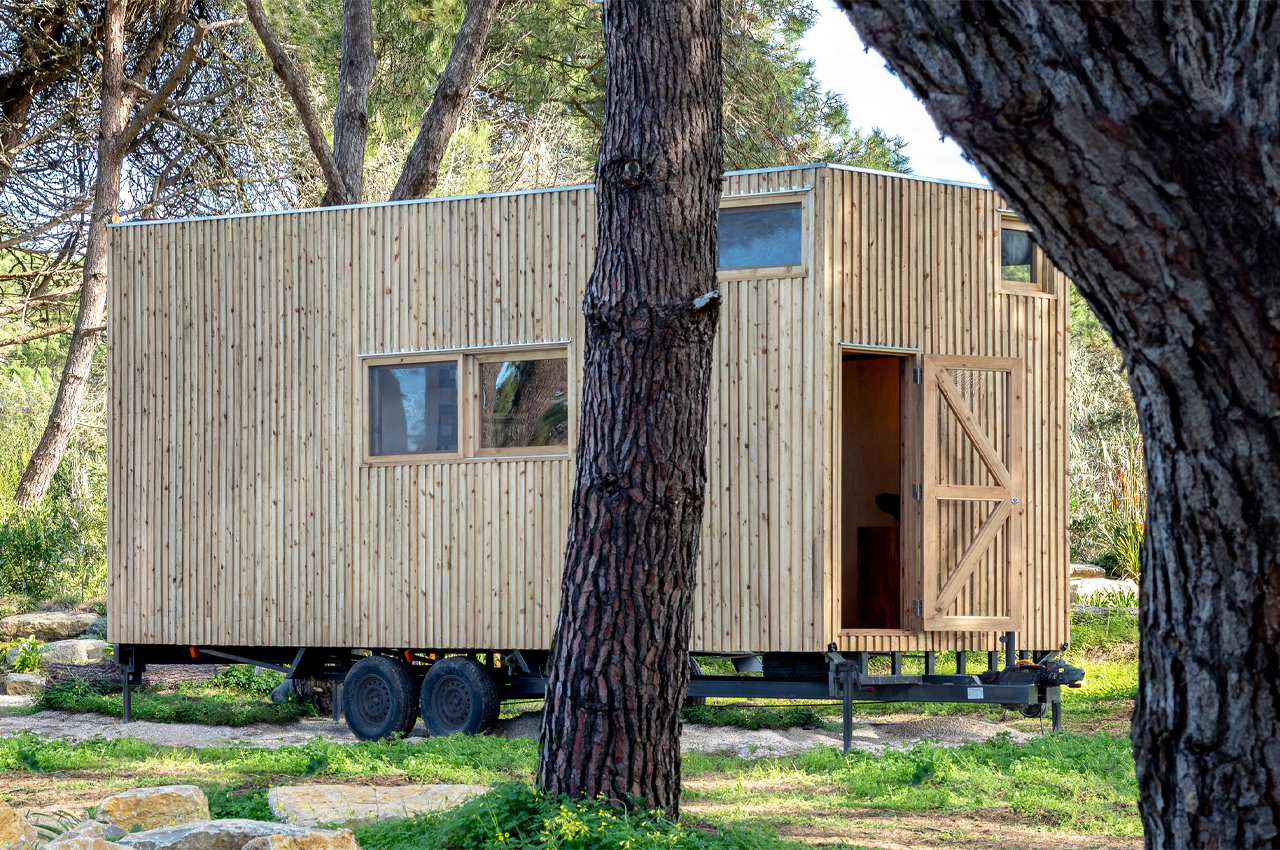
Called Adraga, the tiny home features an array of sustainability elements including solar panels, rainwater collection, and composting garden beds. As part of a larger series of tiny homes on wheels, Adraga is home to a retired couple who just want to disconnect from the busyness of the world.
Why is it noteworthy?
Looking at Adraga from the outside, its unstained pinewood facades invoke simplicity. Defined by a rectangular, flat-roofed silhouette, the team at Madeiguincho found movement through windows and doors. On one end of the tiny home, a single, farmhouse-style door welcomes residents into the home’s subdued bathroom. There, against the soothing backdrop of walnut wood panels, residents can enjoy a semi-outdoor shower atop wooden floor slats.
What we like
- The layout of Adraga is designed to optimize the available floor space
- Incorporated with various off-grid elements
What we dislike
- In the bathroom, a dry toilet operates without flush water and closes the waste loop – but not everyone may be comfortable with using it
5. The Sunshine
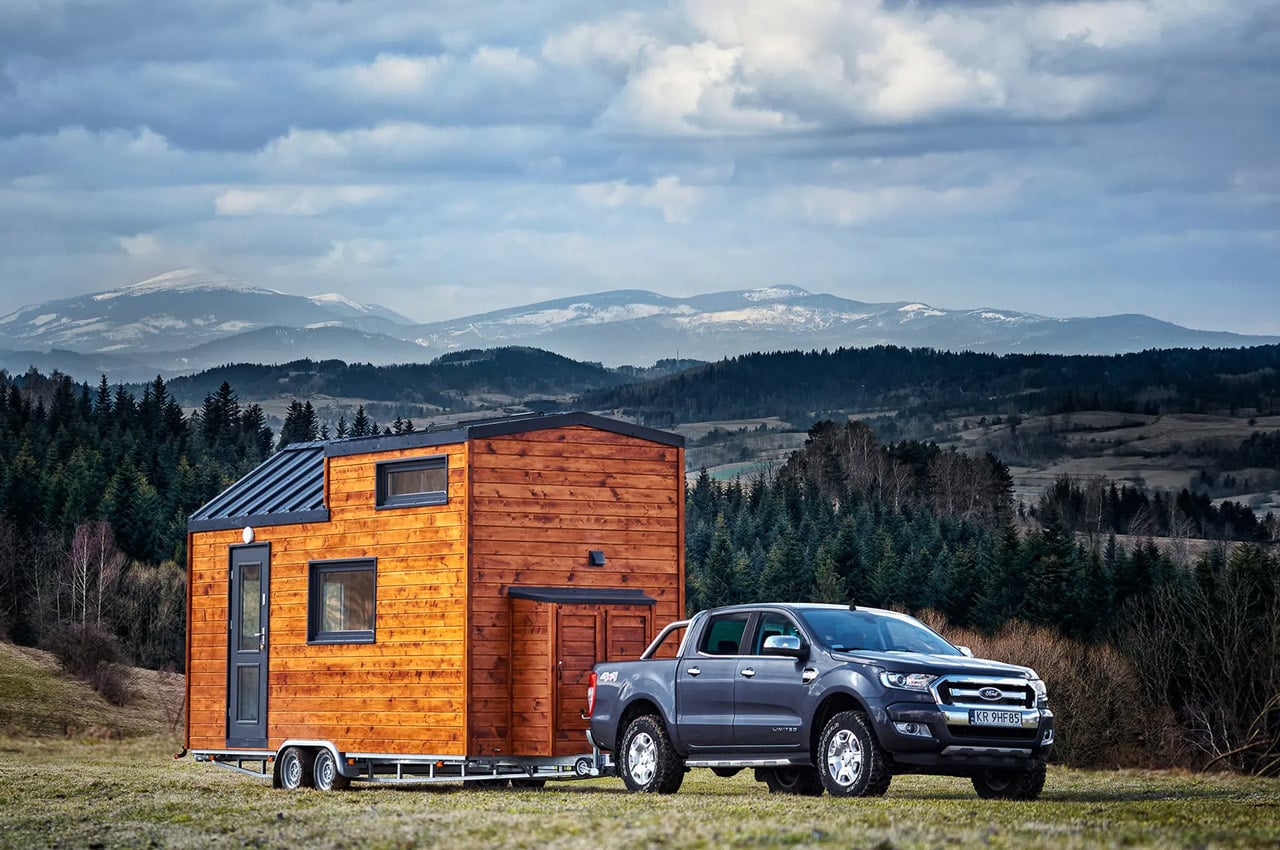
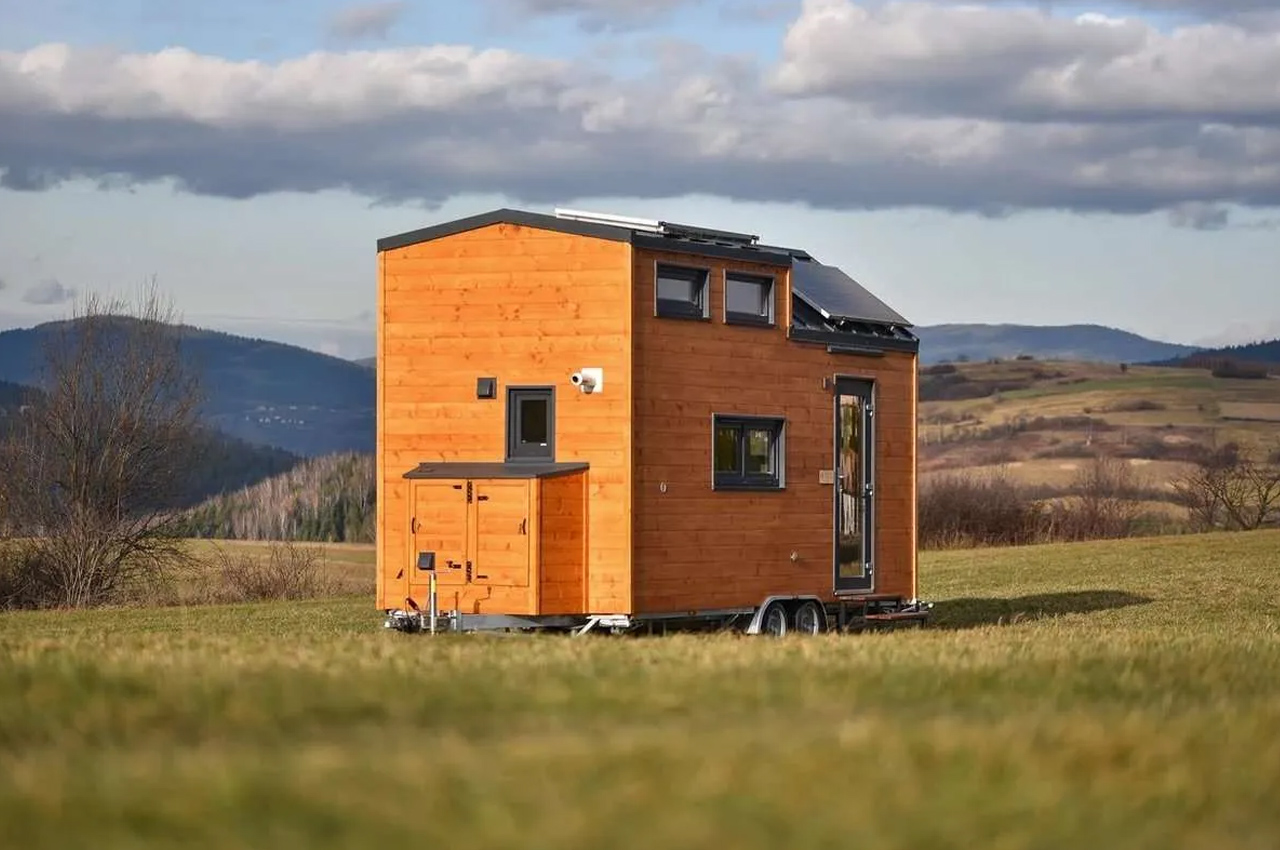
There is always a new idea behind a tiny house we come across. Some thrive on the use of material, some on the number of people it can accommodate. However, designing to create spaciousness within a compact timber project is what really gets me intrigued. This is why the Sunshine tiny house designed and sold by Sweden-based Vagabond Haven is the subject of discussion.
Why is it noteworthy?
As important as it is for a tiny house to be accommodating on the inside, it is vital to be prepared for year-round living. This is the ethos of the Sunshine which measures 6.7m long and 2.55m wide. The little but spacious tiny house offers 21sqm of living space along with a loft bedroom, functional kitchen, bathroom, and convertible sofa for additional sleeping space. The tiny house’s exterior embraces traditional essence with a gabled roof made from lightweight and durable aluminum. The contraption on wheels can be towed behind a car at 80 km/h with utmost convenience.
What we like
- While the exterior is traditional, the minimalistic interior is enhanced with the flow of natural light through the nicely insulated windows and glass door, all finished with tempered glass
- The Sunshine’s radiant interiors make provision for storage under the staircase leading to the solitary loft bedroom
What we dislike
- No complaints!
6. VAYA
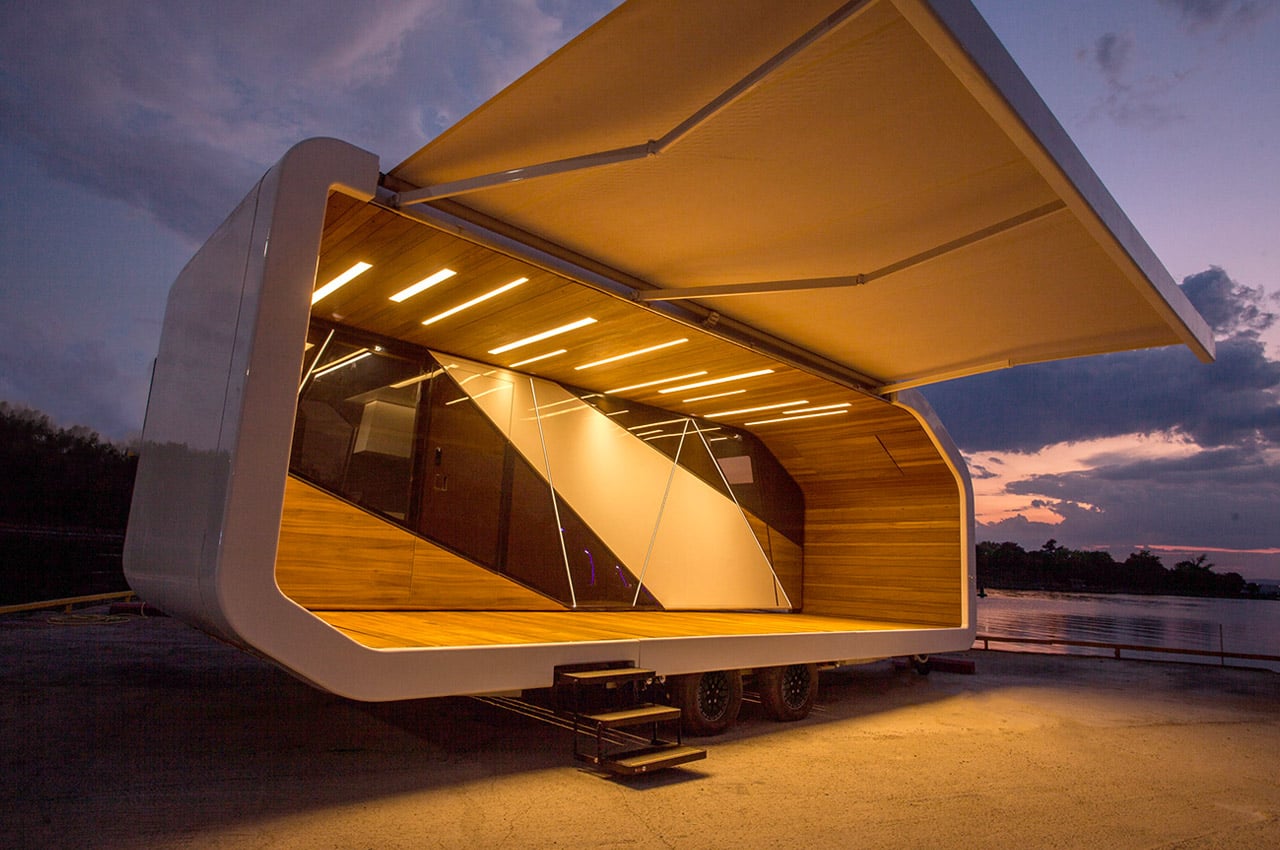
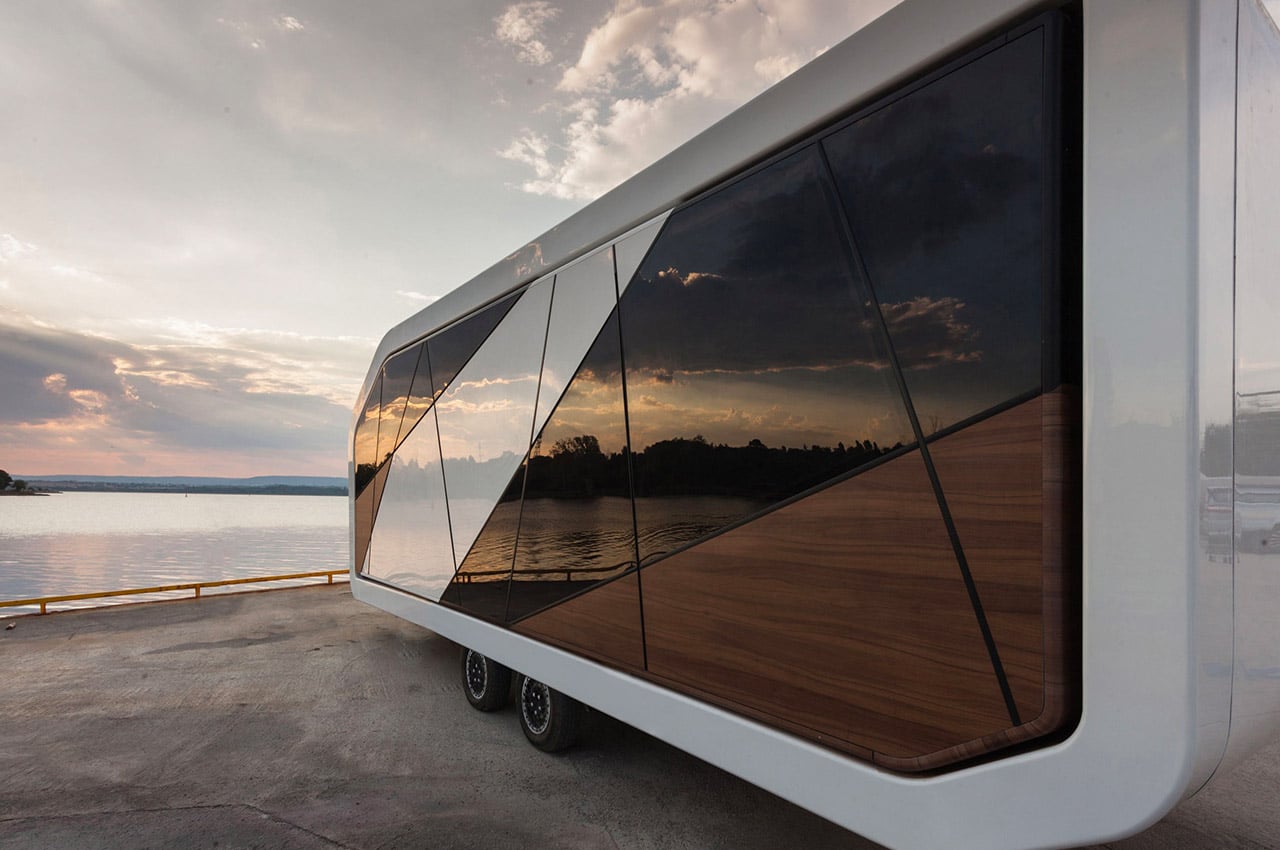
This sleek rectangular mobile home instantly draws attention owing to its futuristic aesthetic and clean white exterior. Designed to be an elegant space for you to live in and spend your everyday moments in VAYA has a compact and comfortable size that can be extended!
Why is it noteworthy?
Amped with a patented unfolding system, Vaya can extend up to two times its original size. And if you choose to utilize the folding awning, it can, in fact, increase to three times its original size! VAYA’s flexibility and modularity make it a great option if you’re constantly moving to different locations and have a large family.
What we like
- The sleek home on wheels has been equipped with additional solar panels on the roof, as well as smart regulation technology for the energy cycle
What we dislike
- No complaints!
7. Hudson
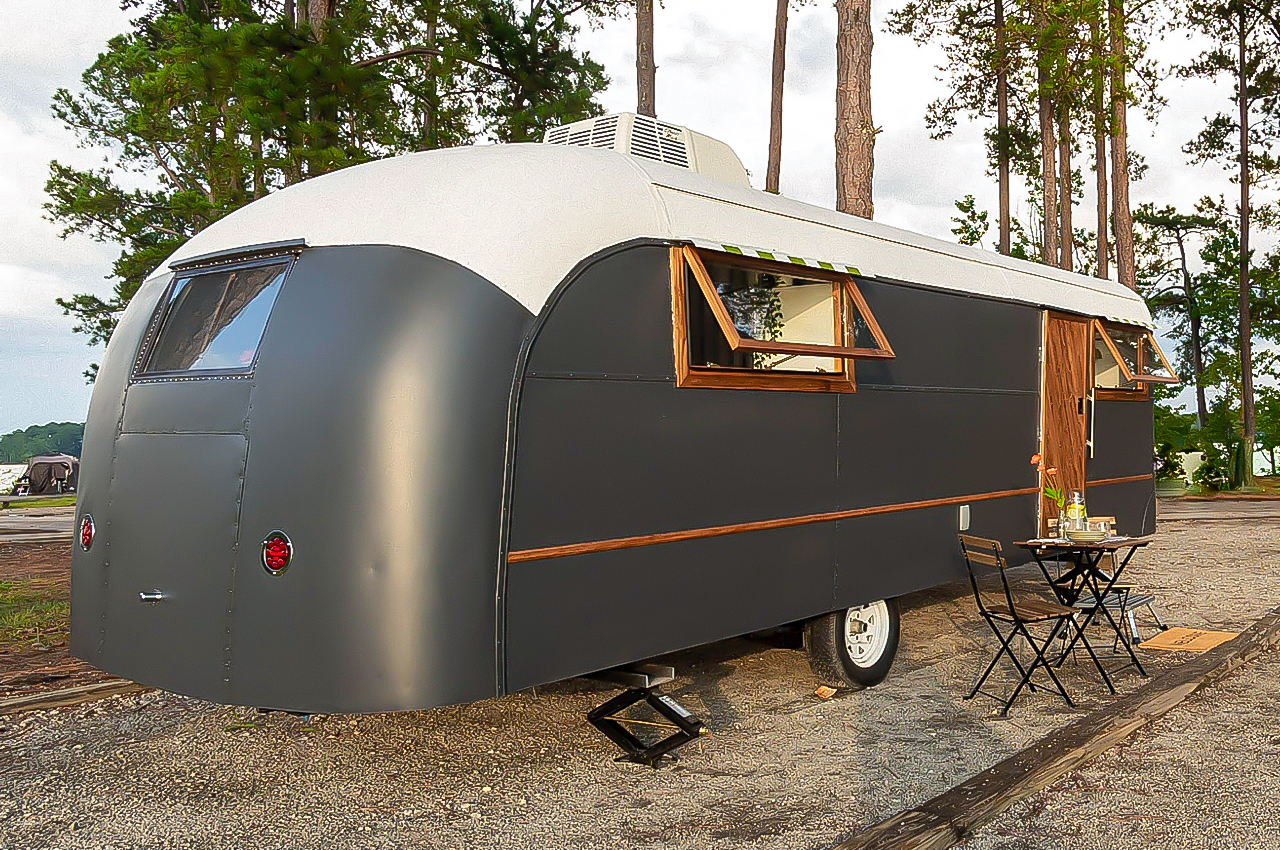
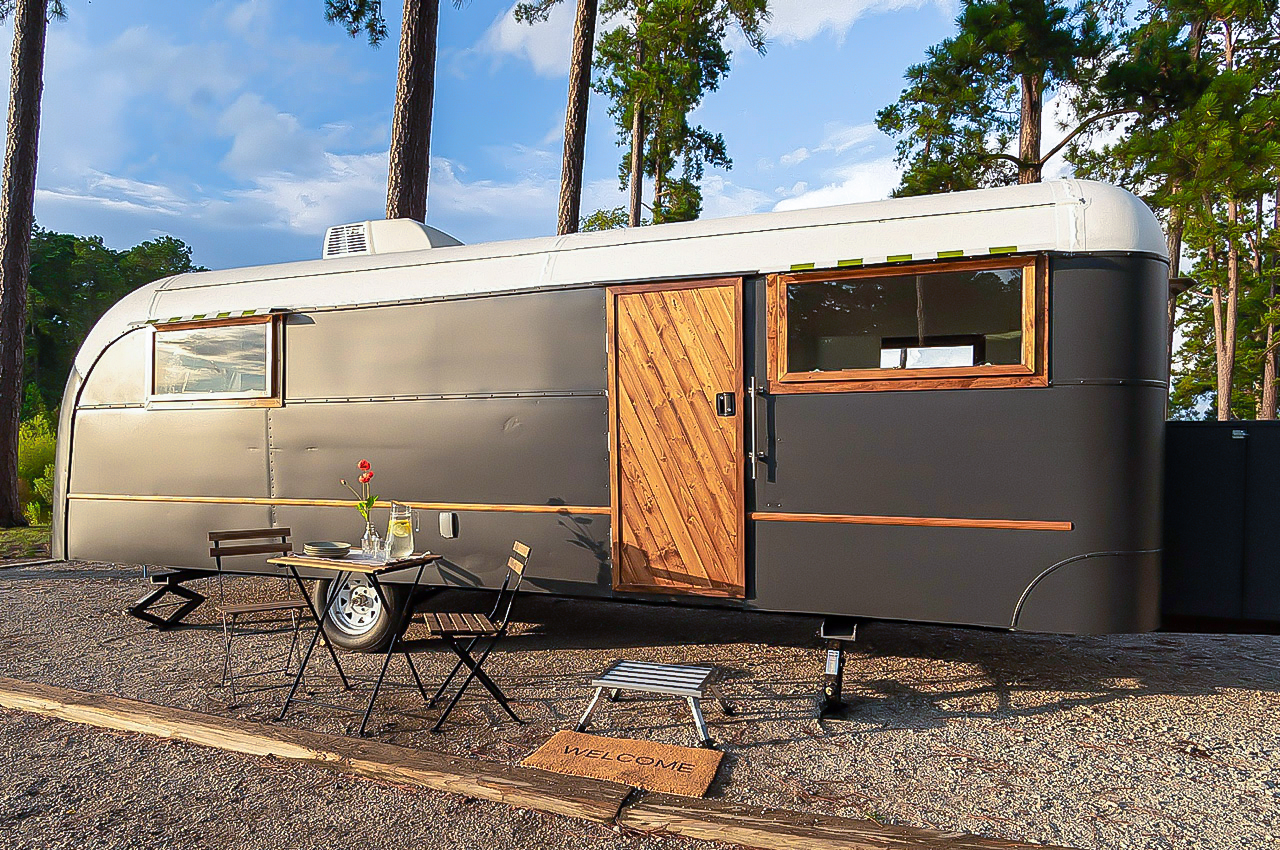
Tasked with the idea of remodeling a vintage 1948 Vagabond travel trailer – developed by Vagabond Coach Manufacturing Company, Michigan, in New Hudson – the Darlin’ Trailers has done the unfathomable! The team recently shared the images of the reworked 23-feet travel trailer – aptly called the Hudson after the original trailer’s birthplace; and if you’re into tiny homes, there is no way you are not going to sit back and appreciate the immaculate use of color, space utilization, and the brilliant overall makeover.
Why is it noteworthy?
The entire vintage travel trailer has been renovated to meet the requirements of the modern-day lifestyle, which starts with the eye-catching exterior. Graced in a striking matte black finish, the trailer now has a contrasting white roof, while the wood accents on the windows and door enhance the curb appeal. You step right into the hallway, wherein your first introduction to affluence is the white interior that complements the back exterior.
What we like
- Features a large skylight and similar windows
- Darlin’ Trailers has tossed a spa-like bathroom into the equation, complete with a toilet, shower, vanity, and lots of storage shelves
What we dislike
- No complaints!
8. Lola
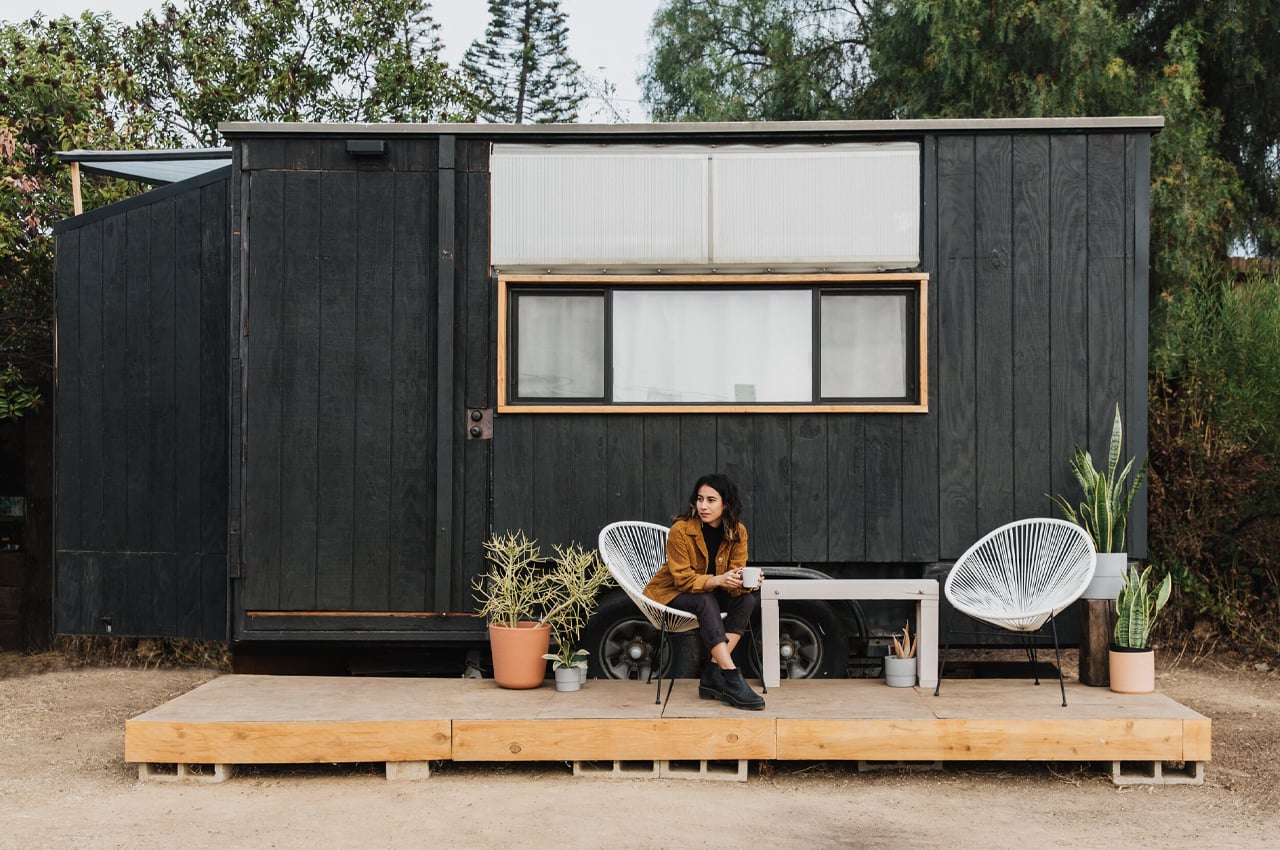
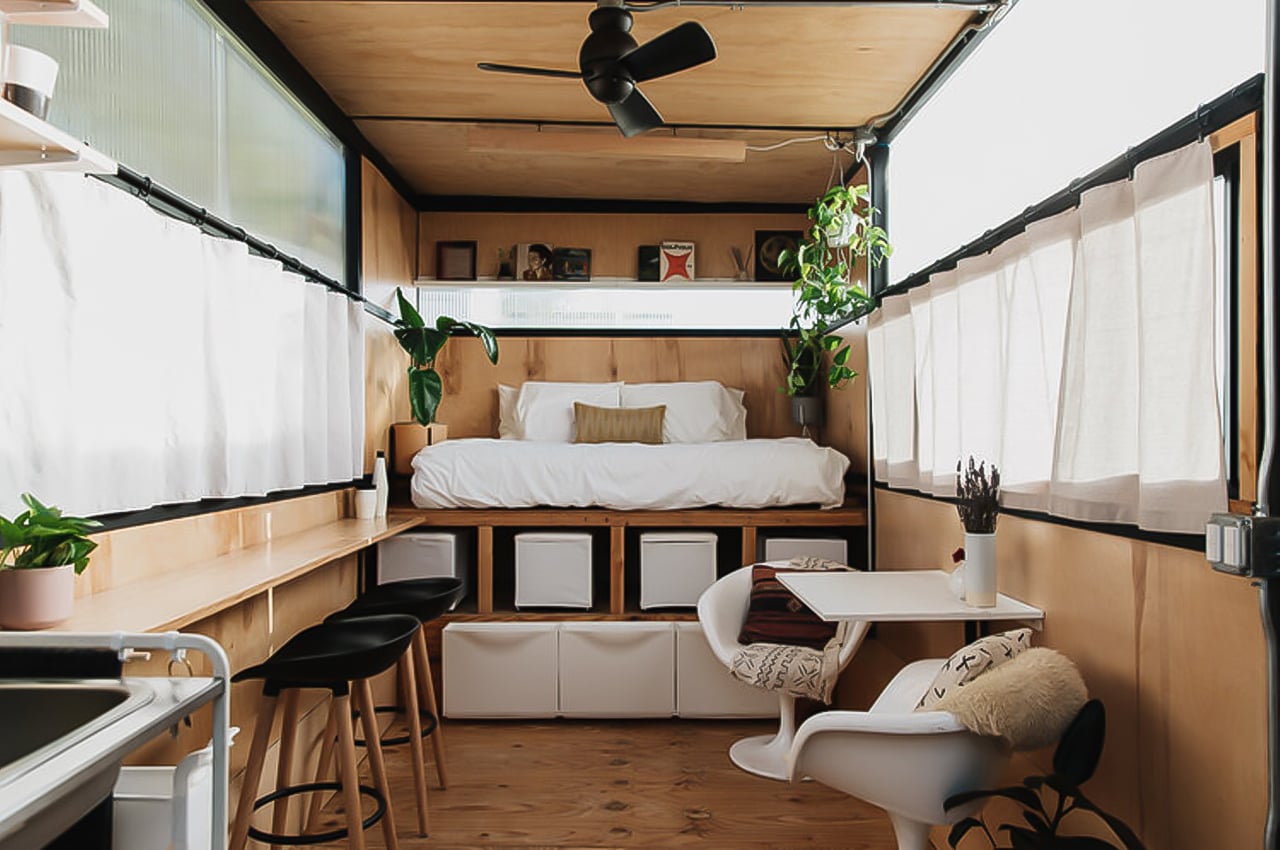
Lola is a tiny home on wheels that’s part of designer Mariah Hoffman’s larger multi-disciplinary design studio and brand Micro Modula, one that explores “home, place, and the self.”
Why is it noteworthy?
Joining the movement, self-taught spatial designer and overall creative Mariah Hoffman planned and constructed her own tiny home on wheels called Lola. Over the span of five years, Hoffman gradually transformed an old utility trailer into a 156-square-foot mobile tiny home. Born out of a daydream to build her own home, Hoffman built Lola to “learn all the necessary skills for [her] personal and creative survival.”
What we like
- Built from construction materials that aesthetically met the bill and also provided some functional elements for the home to brace the seasons as well as the local critters
- The interior was planned in honor of the midcentury design
What we dislike
- The aesthetics may not appeal to everyone
9. IMAGO-iter
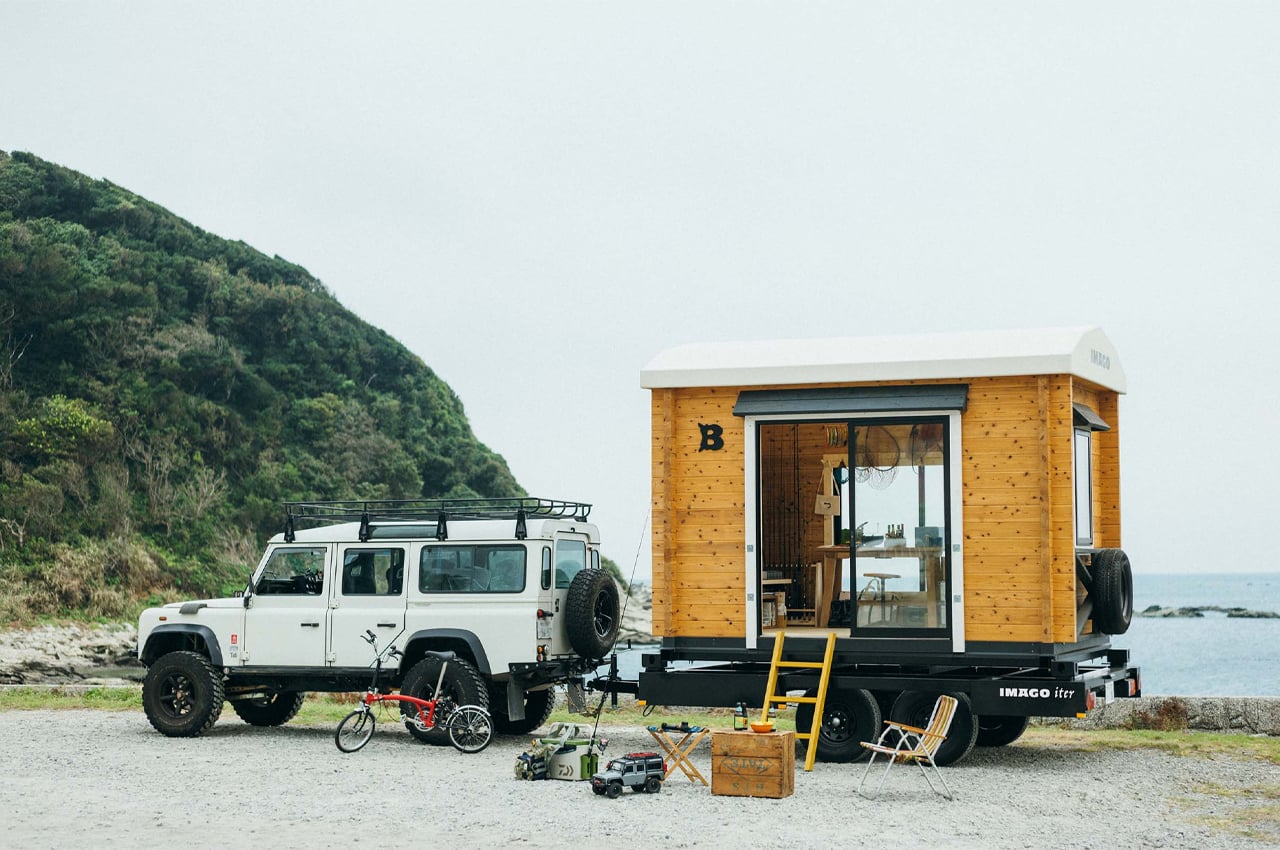
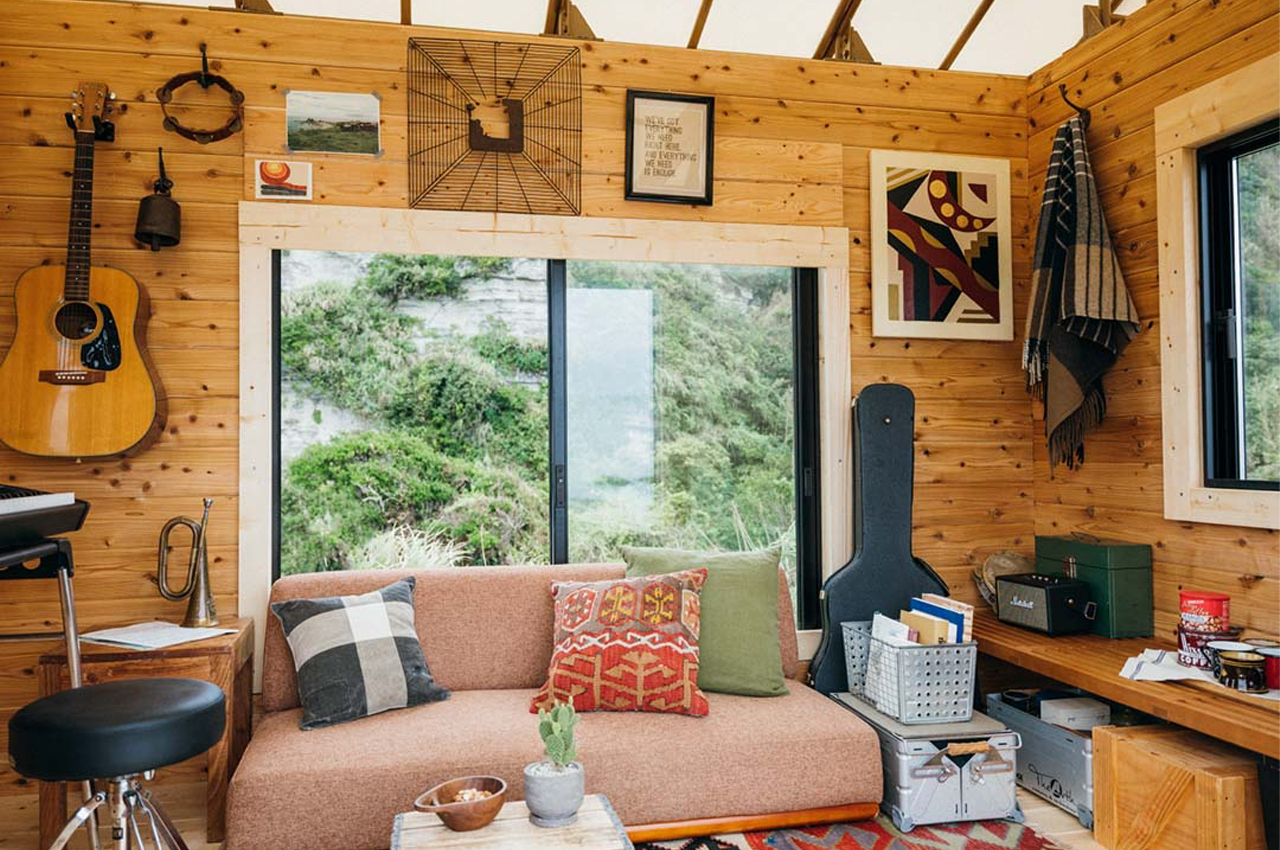
IMAGO-iter carries a 6.5m2 interior volume with 2.4 meters’ worth of headspace, providing just enough room for buyers to customize the space according to their needs. BESS took a customizable approach in designing every aspect of IMAGO-iter, so the mobile home is outfitted with only the bare essentials.
Why is it noteworthy?
Whether you use them as off-grid workspaces or campers on the go, mobile homes provide cozy getaways that we can bring wherever the wind takes us. BESS, a Japanese building firm that specializes in wooden houses, designed and constructed a mobile home called IMAGO-iter to join the party and move with our changing needs.
What we like
- You can choose between a traditional timber or a domed, wagon-like plastic membrane roof
- Suspension and electromagnetic brakes have also been worked into IMAGO-iter’s build to help ensure stable and safe driving
What we dislike
- Outfitted with only the bare essentials
10. The Cercle
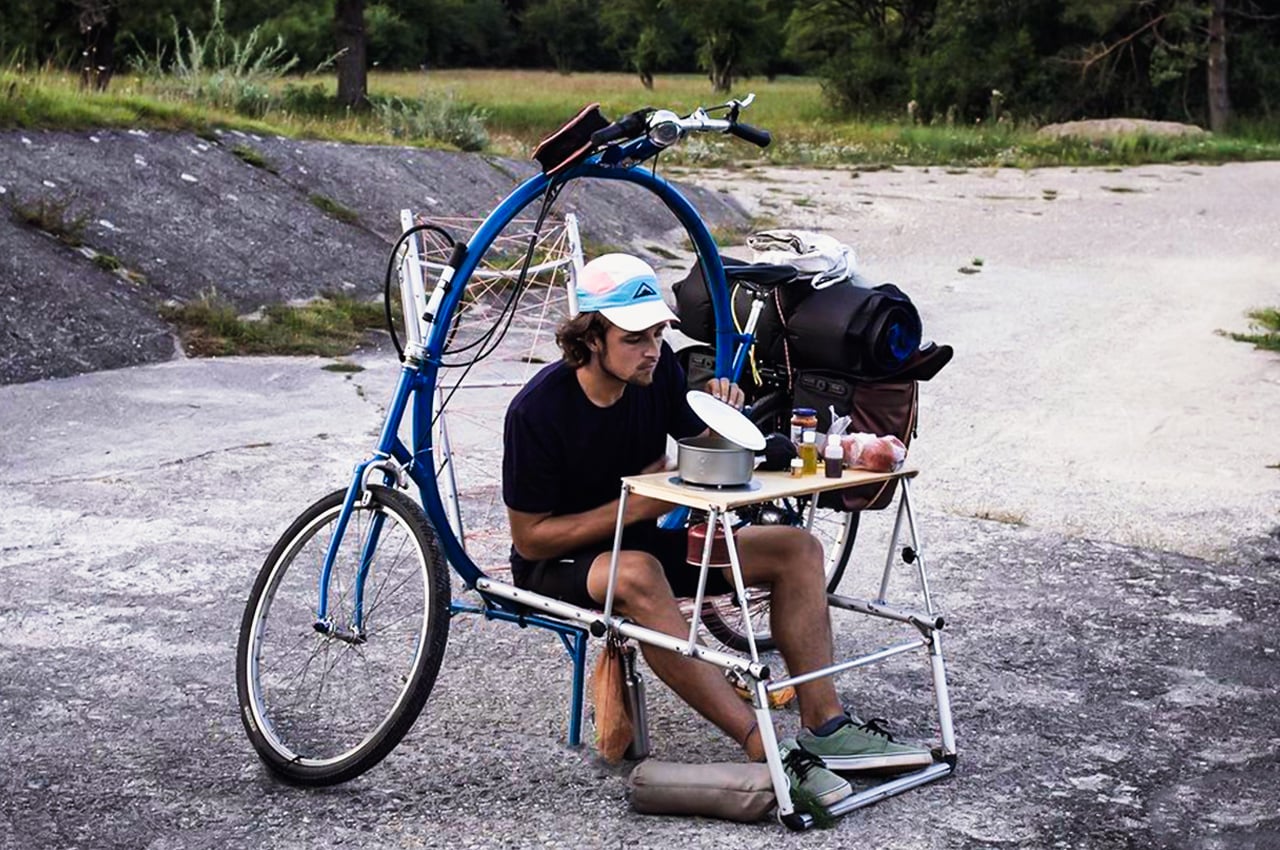

Meet the Cercle, a transformable bicycle designed by Bernhard Sobotta, that is ready for all your road adventures with minimalism at the core. It’s like the cozy feeling of being home no matter wherever you pedal to on the face of this planet. The crazy idea struck Bernhard when in the summer of 2019, he was sitting in his shared kitchen and wondered how he could combine a hammock with a bike frame. He did so by combining a fold-out aluminum day bed frame and the bike frame, bringing Cercle to life!
Why is it noteworthy?
The Cercle’s frame is designed to perform everything from sitting, cooking, working, resting, or even sleeping. So, this two-wheeled paradise is all you need to be classified as a crazy 21st-century nomad who’s leaving virtually no carbon footprint during their solo exploration. If you notice closely, the circular frame of the bicycle holds the foldable day bed stands in the middle. The frame can be oriented for multiple functionalities – for example, for sleeping in the nighttime or as a chair for a comfortable working position, or lounger in a picturesque location. Consequently, when it is time to hit the road, the lounge stand folds up to become a part of the bicycle frame for hassle-free pedaling.
What we like
- You can pitch a one-person tent around the bicycle frame for protection against the elements and nighttime cold weather
- You can mount all your essentials in small backpacks for an adventurous bike tour like none other
What we dislike
- No complaints!



